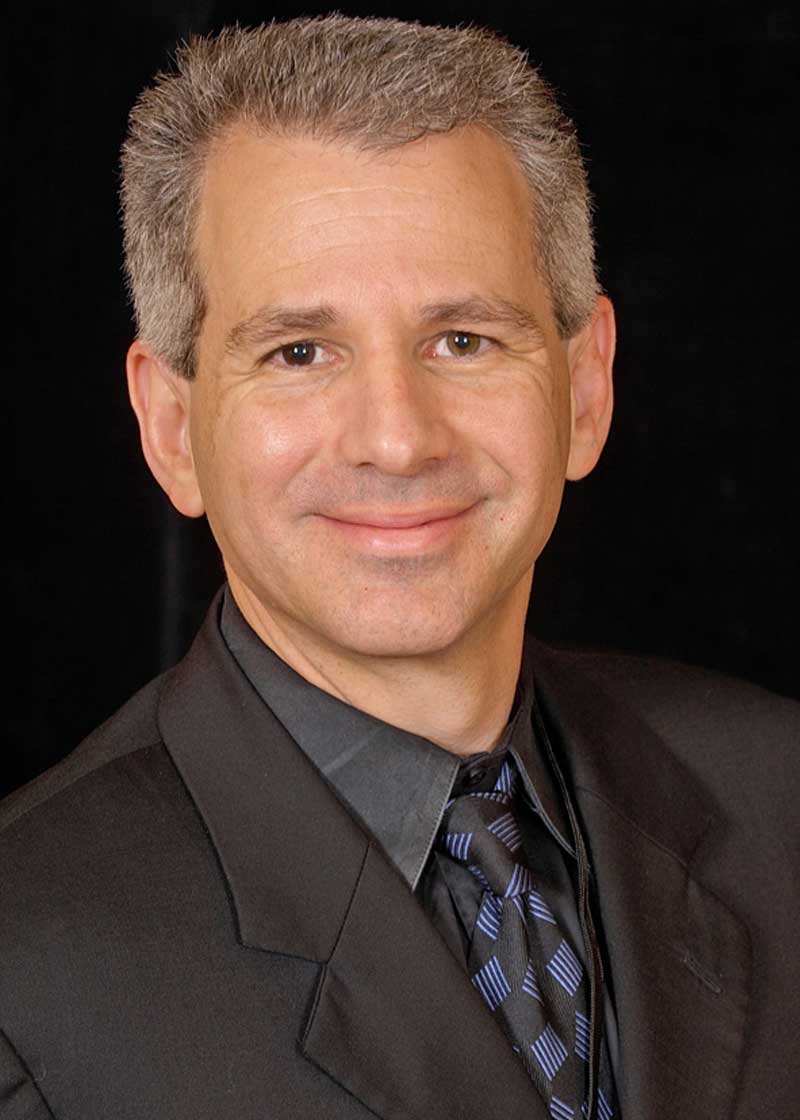The identification of causal relations is fundamental to the science of intervention and prevention. Obesity is a major problem for which much progress in understanding, treatment, and prevention remains to be made.
On-line Registration: Closed
Held On: Mon 7/24/2017 - Fri 7/28/2017
Location:
The University of Alabama at Birmingham
Executive Learning Center (ELC), 6th floor
1705 University Blvd, SPHB 640
Birmingham AL 35233
Lodging Options:
Doubletree by Hilton Hotel Birmingham
808 South 20th Street
Birmingham, AL 35205
Phone: (205) 933-9000
Organizing Committee:
 David Allison, Ph.D.
David Allison, Ph.D.University of Alabama at Birmingham
 Kevin Fontaine, Ph.D.
Kevin Fontaine, Ph.D.University of Alabama at Birmingham
Overview
The identification of causal relations is fundamental to a science of intervention and prevention. Obesity is a major problem for which much progress in understanding, treatment, and prevention remains to be made. Understanding which social and behavioral factors cause variations in adiposity and which other factors cause variations is vital to producing, evaluating, and selecting among intervention and prevention strategies as well as to understanding obesity’s root causes, requiring input from disciplines including statistics, economics, psychology, epidemiology, mathematics, philosophy, and in some cases behavioral or statistical genetics. The application of these techniques, however, does not involve routine well-known ‘cookbook’ approaches but requires understanding of underlying principles, so the investigator can tailor approaches to specific and varying situations. The nine course modules provide rigorous exposure to the key fundamental principles underlying a broad array of techniques and experience in applying those principles and techniques through guided discussion of real examples in obesity research.
-
Agenda
Schedule of Events: Download PDF
Time Topic Speaker Video Monday 7/24/2017 8:00-8:15 Registration 8:15- 8:45 Welcoming & Introductory remarks Allison & Fontaine 8:45-9:00 Attendee introductions Module 1: Introduction to Basic Language, Terms, and Concepts in Statistics and Design. 9:00-9:45 Intro to Statistical Inference (mainly frequentist, with a little Bayesian; covariate and propensity score adjustment, etc.) David Redden Watch Video 9:45-10:00 BREAK 10:00-10:45 Intro to Energy Balance and Laws of Thermodynamics Diana Thomas Watch Video 10:45-11:30 Study Designs & Quantifying Effect and Association Size Christopher Haddock Watch Video 11:30-12:30 LUNCH Module 2: Conventional Observational Studies: Advantages, Limits, and Best Practices 12:30-1:15 Best Practices – Ethical Use, Hill’s Guidelines, Negative Controls, Meta-Analysis, Public Data Availability, etc. Douglas Weed Watch Video 1:15-1:45 Advantages Bertha Hidalgo Watch Video 1:45-2:15 Limits I – Theory: Bias and Confounding Dominick Alexander 2:15- 2:30 BREAK 2:30-3:30 Interactive Activity - Causal inference on BMI change and mortality in humans. Tapan Mehta & Hailey Banack 3:30-4:00 Limits II – Empirical: Evidence & Cases Studies of Confirmation and Non-Confirmation of Observational Study- Generated Hypotheses Andrew Brown 4:00-5:00 Moderated Discussion and Wrap-up 6:30 Dinner – Short Course meet & greet (voluntary) Tuesday 7/25/2017 Module 3: Randomized Controlled Experiments – I 9:00-9:10 Theory: Potential Outcomes David B Allison Watch Video 9:10-10:00 Methods for Randomization (including cluster randomization, stratified, choice of allocation ratios, adaptive, etc.) Scarlett Bellamy Watch Video 10:00-10:45 Power & Sample Size Calculation Charity Morgan 10:45-11:15 Choice of Control Condition based on Hypothesis and Anticipated Claims Kevin Fontaine Watch Video 11:15-11:30 BREAK 11:30-12:00 Controlling for Expectancy and Non-Specific Effects Peter Hendricks Watch Video 12:00-1:00 LUNCH Module 4: Randomized Controlled Experiments – II 1:00-1:45 Interactive Activity Mini-Debates:
“Intention to Treat (ITT) vs Per Protocol”Gary Cutter
George HowardWatch Video 1:45-2:30 Practical Challenges: Measurement Error, Missing Data, Assumption Violations, etc. Diane Catellier Watch Video 2:30-2:45 BREAK 2:45-3:45 Ethical Issues in RCEs Theodore K. Kyle Watch Video 3:45-4:15 Procedural Elements: Trial Registration, Reporting Guidelines Andrew Brown Watch Video 4:15-4:45 Large Simple Trials & Cluster Randomized Trials J Michael Oakes Watch Video 6:30 Dinner – Short Course meet & greet (voluntary) Wednesday 7/26/2017 Module 5: Quasi Experiments 9:00- 9:15 Quasi-experiments – Their Importance in Evaluating Changes That Occur Matthew Maciejewski Watch Video 9:15- 10:35 Design & Analysis Matthew Maciejewski Watch Video 10:35-10:50 BREAK 10:40-11:15 Ethical Issues Greg Pavela Watch Video 11:15-12:00 Real World Case Studies Nir Menachemi Watch Video 12:00-1:00 LUNCH Module 6: Natural Experiments 1:00-1:45 The Role of Natural Experiments in Public Health Decision Making Ed Gregg Watch Video 1:45-2:15 Interactive Activity – Pavela, Fontaine David Allison, Moderator Watch Video 2:15-3:00 Packet Randomized Experiments: Adoption Example Greg Pavela Watch Video 3:00-3:45 Analysis Bisakha Sen Watch Video 3:45-4:00 BREAK 4:00-4:45 Study Design and Practical Applications of Natural Experiments in Public Health Ed Gregg Watch Video 4:45-5:30 Moderated Discussion and Wrap-up 6:30 Dinner – Short Course meet & greet (voluntary) Thursday 7/27/2017 Module 7: Genetically Informed Designs – Unmeasured Genotype Approaches 9:00-9:45 Co-Twin and Sibling Control Designs Matt McGue Watch Video 9:45-10:45 Structural Equation Modeling of Twin and Family Data to Assess Causal Effects. Michael Neale Watch Video 10:45-11:00 BREAK 11:00-11:45 Study of Behavioral Phenotypes of Obesity in Children: Ethical Considerations Tanja Kral Watch Video 11:45-1:00 LUNCH Module 8: Genetically Informed Designs – Measured Genotype Approaches 1:00-1:30 Causal Inference from Mendelian Randomization Nicholas Timpson 1:30-2:30 Interactive Activity – prepare for Friday roundtable David Allison & Kevin Fontaine 2:30-3:15 Methodological issues in Testing for Gene by Environment or Gene by Behavior Interaction Ruth Loos PhD 3:15-3:30 BREAK 3:30-4:15 Social, behavioral, and ethical issues Diane Tucker 4:15-4:45 Real World Case Studies - Causal Inference and Counterfactuals in Obesity Research: Obesity and the Gut Microbiome. Andrew Heath 4:45-5:30 Moderated Discussion and Wrap-up 6:30 Dinner – Short Course meet & greet (voluntary) Friday 7/28/2017 Module 9: Mediating and Moderating Variables 9:00-9:45 Conceptual Models (the mediator moderator distinction, environmental, behavioral, psychological, physiological, and molecular mediators and moderators) Francesca Filbey Watch Video 9:45-10:30 Testing in General Linear Models Amanda Fairchild Watch Video 10:30-10:45 BREAK 10:45-11:30 Testing in Structural Equation Models Michael Neale Watch Video 11:30-12:00 Real Life Examples & Ethical Issues Amanda Fairchild Watch Video 12:00-1:00 LUNCH Module 10: Group Roundtable Preparation, Presentation & Discussion 1:00 - 3:00 Group Roundtable Preparation 3:00-5:00 5 Roundtable Groups Presentations (10 minutes each) Followed by Discussion 5:00-5:10 Closing Remarks David Allison & Kevin Fontaine -
Speakers
- Dominik D. Alexander, Ph.D. MSPH - EpidStat Institute
- Hailey Banack, Ph.D. - McGill University
- Scarlett Bellamy, ScD - University of Pennsylvania
- Diane Catellier, Ph.D. ACCTHD RTI
- Ed Gregg, Ph.D. - CDC
- Amanda J. Fairchild, Ph.D. - University of South Carolina
- Francesca Filbey, Ph.D. - University of Texas at Dallas
- Christopher K. Haddock, Ph.D. - HOPE Health Research Institute
- Andrew Heath, Dphil - Washington University
- Theodore K. Kyle, RPh MBA - ConscienHealth
- Tanja Kral, Ph.D. - University of Pennsylvania
- Adam Leventhal, Ph.D. - University of Southern California
- Ruth Loos, Ph.D. - Mount Sinai Hospital
- Matt Mc Gue, Ph.D. - University of Minnesota
- Matthew Maciejewski, Ph.D. - Duke University
- Nir Menachemi, Ph.D. - Indiana University
- Michael C. Neale, Ph.D. - Virginia Commonwealth University
- J Michael Oakes, Ph.D. - University of Minnesota
- Diana Thomas, Ph.D. - Montclair State University
- Douglas Weed, MD Ph.D. - DLW Consulting Services, LLC
- David B. Allison, Ph.D. - UAB
- Andrew Brown, Ph.D. - UAB
- Gary R Cutter, Ph.D. - UAB
- Kevin Fontaine, Ph.D. - UAB
- George Howard, DrPH - UAB
- Emily B. Levitan, ScD - UAB
- Tapan Mehta, Ph.D. - UAB
- Charity Morgan, Ph.D. - UAB
- Gregory Pavela, Ph.D. - UAB
- David T Redden, Ph.D. - UAB
- Bisakha Sen, Ph.D. - UAB
- Diane C Tucker, Ph.D. - UAB
-
Contact
Elizabeth W. Smith, MPA, RDN, LDN
Program Manager II
Chief Administrative Officer
UAB Nutrition Obesity Research Center
Phone: (205) 975-9675
Email:This email address is being protected from spambots. You need JavaScript enabled to view it.
We would like to thank our sponsors for their support: National Institutes of Health & Office of Energetics.
 NIH Disclaimer: This material is based upon work supported by the National Institutes of Health under Grant No. (R25HL124208). Any opinions, findings, and conclusions or recommendations expressed in this material are those of the author(s) and do not necessarily reflect the views of the National Institutes of Health.
NIH Disclaimer: This material is based upon work supported by the National Institutes of Health under Grant No. (R25HL124208). Any opinions, findings, and conclusions or recommendations expressed in this material are those of the author(s) and do not necessarily reflect the views of the National Institutes of Health.